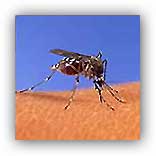|
As a further safety measure against the emerging
Zika virus outbreak, today the U.S. Food and Drug
Administration issued a revised guidance
recommending universal testing of donated Whole
Blood and blood components for Zika virus in the
U.S. and its territories.

“There is still much uncertainty regarding the
nature and extent of Zika virus transmission,” said
Peter Marks, M.D., Ph.D., director of the FDA’s
Center for Biologics Evaluation and Research. “At
this time, the recommendation for testing the entire
blood supply will help ensure that safe blood is
available for all individuals who might need
transfusion.”
The guidance announced today recommends that all
states and U.S. territories screen individual units
of donated Whole Blood and blood components with a
blood screening test authorized for use by the FDA
under an investigational new drug (IND) application,
or a licensed test when available. Alternatively, an
FDA-approved pathogen-reduction device may be used
for plasma and certain platelet products.
Testing of donated blood is already underway in
Florida and Puerto Rico, as well as in other areas,
and it has shown to be beneficial in identifying
donations infected with Zika virus. Expanded testing
will continue to reduce the risk for transmission of
Zika virus through the U.S. blood supply and will be
in effect until the risk of transfusion transmission
of Zika virus is reduced.
Zika virus is transmitted primarily by the Aedes
mosquito. Zika virus can also be spread by sexual
contact. Although 4 out of 5 people infected with
Zika virus never develop symptoms, when symptoms do
occur they may include fever, arthralgia (joint
pain), maculopapular rash (red area with small
bumps), and conjunctivitis (red, irritated eyes). In
addition, Zika virus infection during pregnancy can
cause serious birth defects and is associated with
other adverse pregnancy outcomes.
“As new scientific and epidemiological information
regarding Zika virus has become available, it’s
clear that additional precautionary measures are
necessary,” said Luciana Borio, M.D., the FDA’s
acting chief scientist. “We are issuing revised
guidance for immediate implementation in order to
help maintain the safety of the U.S. blood supply.”
In addition to protecting the nation’s blood supply,
the FDA works to protect the safety of our nation’s
supply of human cells, tissues, and cellular and
tissue-based products; supports the development and
availability of diagnostic tests that may be useful
for identifying the presence of or prior exposure to
the Zika virus; works with commercial and government
developers to advance the development of
investigational vaccines and therapeutics; and
monitors for fraudulent products and false product
claims related the Zika virus.
See also
Many U.S. families considering pregnancy don’t know
Zika facts (2016-04-04)
Link...
For more information
U.S. Food and Drug Administration
Link...
MDN |